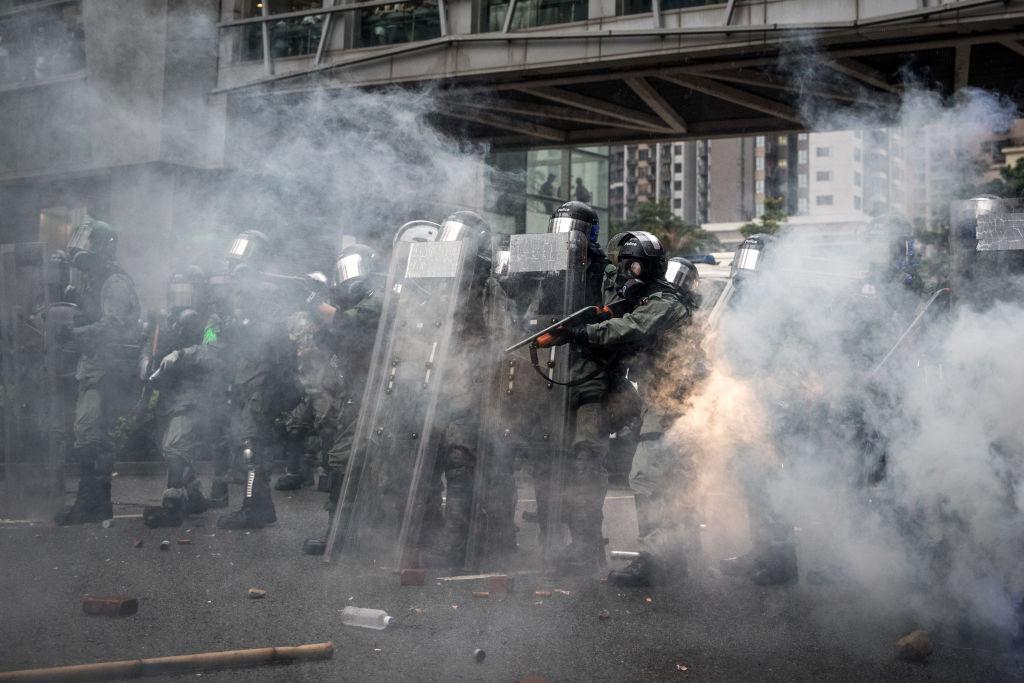U.S. lawmakers recently introduced a bill aimed at curbing Hong Kong police violence against protesters.
The Protect Hong Kong Act (H.R. 4270) would prohibit U.S. companies from exporting “non-lethal crowd-control items” and other “defense articles and services” to Hong Kong, where local police have continually used tear gas, pepper spray, rubber bullets, and sponge grenades to disperse protesters during anti-government demonstrations. If passed, the ban would take effect within 30 days.





